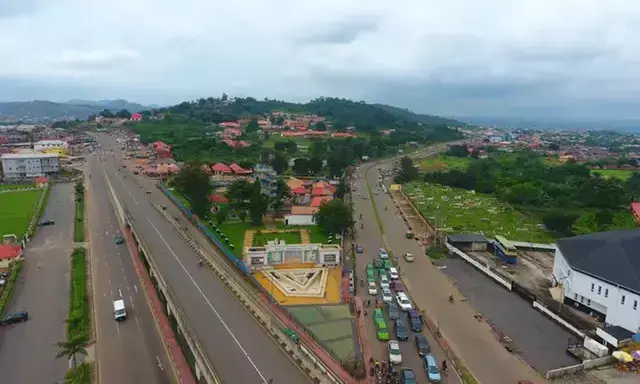Nigeria approves first national land transport policy
The move marks a major step toward modern, efficient and sustainable transport systems across Africa.

Nigeria has taken a major step toward transforming its transport landscape as the Federal Executive Council approved the country’s first-ever National Land Transport Policy. The initiative aims to modernise the sector, promote innovation, and strengthen regional competitiveness across Africa.
Minister of Transportation, Senator Said Ahmed Alkali, announced the development during the 7th National Conference of the Chartered Institute of Transport Administration of Nigeria (CIOTA) in Abuja. He said the policy was the outcome of extensive collaboration with industry stakeholders and reflected the government’s commitment to creating a safe, efficient, and integrated transport system.
Alkali highlighted Nigeria’s growing drive toward indigenous innovation, noting the successful test flight of drones developed by engineers at the Nigerian Institute of Transport Technology (NITT) in Zaria. He said the country was embracing smart mobility solutions, intelligent transport systems, and blockchain-enabled logistics to improve transparency and sustainability in the movement of goods and people.
From a broader African perspective, Nigeria’s move signals growing momentum toward sustainable, technology-driven transport systems that could set an example for other nations on the continent.
Kaduna State Governor Uba Sani also praised CIOTA for its role in professionalising the industry and attracting investors. He outlined Kaduna’s transport achievements, including the launch of the Kaduna Bus Rapid Transit (KBRT) system, the first in Northern Nigeria, developed in partnership with the Agence Française de Développement. The 24-kilometre BRT corridor features 120 compressed natural gas-powered buses designed to reduce carbon emissions by 38 percent and create more than 14,000 jobs.
Governor Sani further mentioned major projects underway in Kaduna, such as the construction of 85 urban and rural roads covering 785 kilometres, a modern interstate bus terminal at Kakuri nearing completion, a subsidised CNG transport scheme with 100 buses, and the Kaduna Light Rail project linking the Rigachikun–Sabon Tasha corridor to the Abuja–Kaduna line.
CIOTA President Prince Segun Obayendo said the conference theme, “Repositioning Nigeria’s Transport Infrastructure and Governance Models for Global Competitiveness”, reflects the need for seamless multimodal connectivity and professional standards to match global benchmarks.
He added that while Nigeria has expanded its transport education network with universities, polytechnics, and maritime institutes offering specialised programmes, there remains a pressing need to professionalise the sector, especially in inland waterways operations.
Nigeria’s first national land transport policy, coupled with growing regional efforts in infrastructure and innovation, signals Africa’s commitment to building efficient, sustainable, and globally competitive transport systems for the future.


